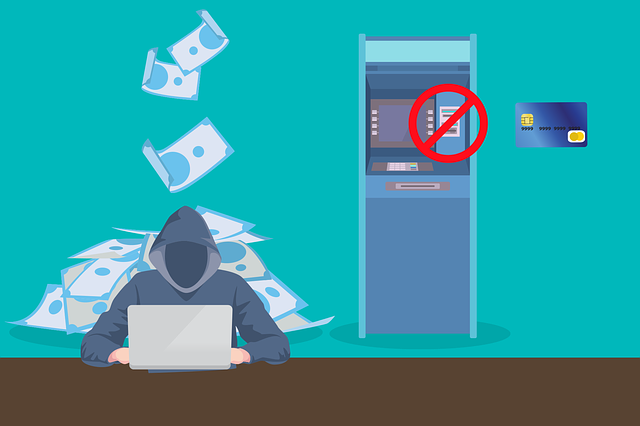
-
8.7% of digital deals in the Philippines in 2022 were believed fraudulent, the third highest among countries and regions that TransUnion Report studied
-
The top targets in the Philippines were logistics businesses, with digital fraud cases soaring 133% since 2019
-
Digital fraud attempts from the country last year were 18% less than in pre-pandemic 2019
-
Despite the drop in the digital fraud rate to 2019 levels, the volume of digital fraud attempts globally rose 80% from 2019 to 2022
Some 8.7% of digital transactions in the Philippines in 2022 were suspected to be fraudulent and ranked the third highest among all countries and regions studied by global information and insights company TransUnion.
However, the volume of digital fraud attempts originating in the country decreased 18% compared with pre-pandemic 2019, said TransUnion, a global information and insights company and the Philippines’ first comprehensive private credit reference agency.
TransUnion released on March 31 its 2023 State of Omnichannel Fraud Report that examines digital fraud trends and prevention strategies to enable trust in today’s omnichannel marketplace.
The study showed that 4.6% of global digital transactions analyzed were potentially fraudulent in 2022, largely in line with the rate seen in 2019.
Despite the easing of the digital fraud rate back to the 2019 level, the volume of global digital fraud attempts surged 80% from 2019 to 2022, alongside a marked increase in global digital transactions during the same period.
“Despite the return to the pre-pandemic levels, the Philippines’ digital fraud rate still stands at a much higher level than the global average, leaving no room for complacency,” said Amrita Mitra, chief operating officer at TransUnion Philippines.
“As fraudsters become increasingly sophisticated, businesses must continue to equip themselves with the proper tools to detect fraud at the first warning sign without inhibiting the consumer journey.”
Logistics tops list of targeted industries in Philippines
Globally in 2022, the gaming and retail industries saw the highest rates of suspected digital fraud cases at 7.5% and 7.2%, respectively. These were followed by video gaming at 5.4%, financial services at 4.2% and communities (i.e. online dating and forums) at 4%.
However, the highest rate of growth globally since 2019 was observed in the travel & leisure industry. This sector saw an 117% jump in suspected digital fraud globally as more and more consumers looked to resume traveling following the pandemic period.
For transactions originating in the Philippines, the logistics industry saw suspected digital fraud cases soar 133% since 2019. The gaming and communities (online dating and forums) industries also experienced notable growth in digital fraud attempts, up 30% and 15%, respectively, over the same period.
Global and Philippine Digital Fraud Attempt Rate Change by Industry – 2019-2022
| Industry | Philippines (%) | Global (%) | Global (% change 2019-2022) |
| Gaming (online sports betting, poker, etc.) | 30% | 7.5% | -21% |
| Retail | -59% | 7.2% | 7% |
| Video Gaming | -66% | 5.4% | -82% |
| Financial services | -41% | 4.2% | 39% |
| Communities (online dating, forums, etc.) | 15% | 4.0% | -8% |
| Travel & Leisure | 0% | 2.1% | 117% |
| Telecommunications | -55% | 2.1% | -51% |
| Insurance | N/A | 1.7% | 22% |
| Logistics | 133% | 1.3% | 63% |
Source: TransUnion TruValidateTM
Majority of Filipinos encounter digital fraud schemes
The study found that a large percentage of people are being impacted by digital fraud attempts across a wide range of communications channels. In a TransUnion-commissioned consumer survey across 18 countries and regions globally, 52% of the respondents indicated they were targeted by digital fraud via email, online, phone call, or text messaging in the three months beginning September 2022.
Among Filipinos surveyed, 71% said they were targeted by digital fraud attempts across these communications channels, and 11% among all surveyed actually fell victim over this period.
Phishing (fraudulent emails, social posts, websites and QR codes) and smishing (fraudulent mobile text messages), both at 46%, were the most commonly reported fraud schemes experienced by Filipinos, followed by third-party seller scams at 33% and identity theft at 25%.
Consumers want secure and convenient digital experience
Additional findings also showed that consumers expect businesses to protect their identities and online accounts. Globally, 63% of respondents indicated they want to be explicitly authenticated to access their online accounts. Some 70% preferred to be authenticated once at the start of their online sessions. A clear majority of 78% said they prefer having multifactor authentication turned on all the time.
Similar observations were seen among Filipinos, with 72% saying they want to be explicitly authenticated to access their online accounts. Of those surveyed, 65% preferred to be authenticated once at the start of an online service, and 84% preferred having multifactor authentication turned on at all times.
TransUnion came to its conclusions based on intelligence from its identity and fraud product suite TransUnion TruValidateTM that helps secure trust across channels and delivers efficient consumer experiences.
Specific country and regional data in the report include Brazil, Canada, Chile, Colombia, Dominican Republic, Hong Kong, India, Kenya, Mexico, Namibia, Philippines, Puerto Rico, Rwanda, South Africa, Spain, United Kingdom, United States and Zambia.
RELATED READ:
Digital Transformation in the Philippines Logistics Industry: Why & How?
Time to fold the paper planes – the case for digitalization for air cargo




